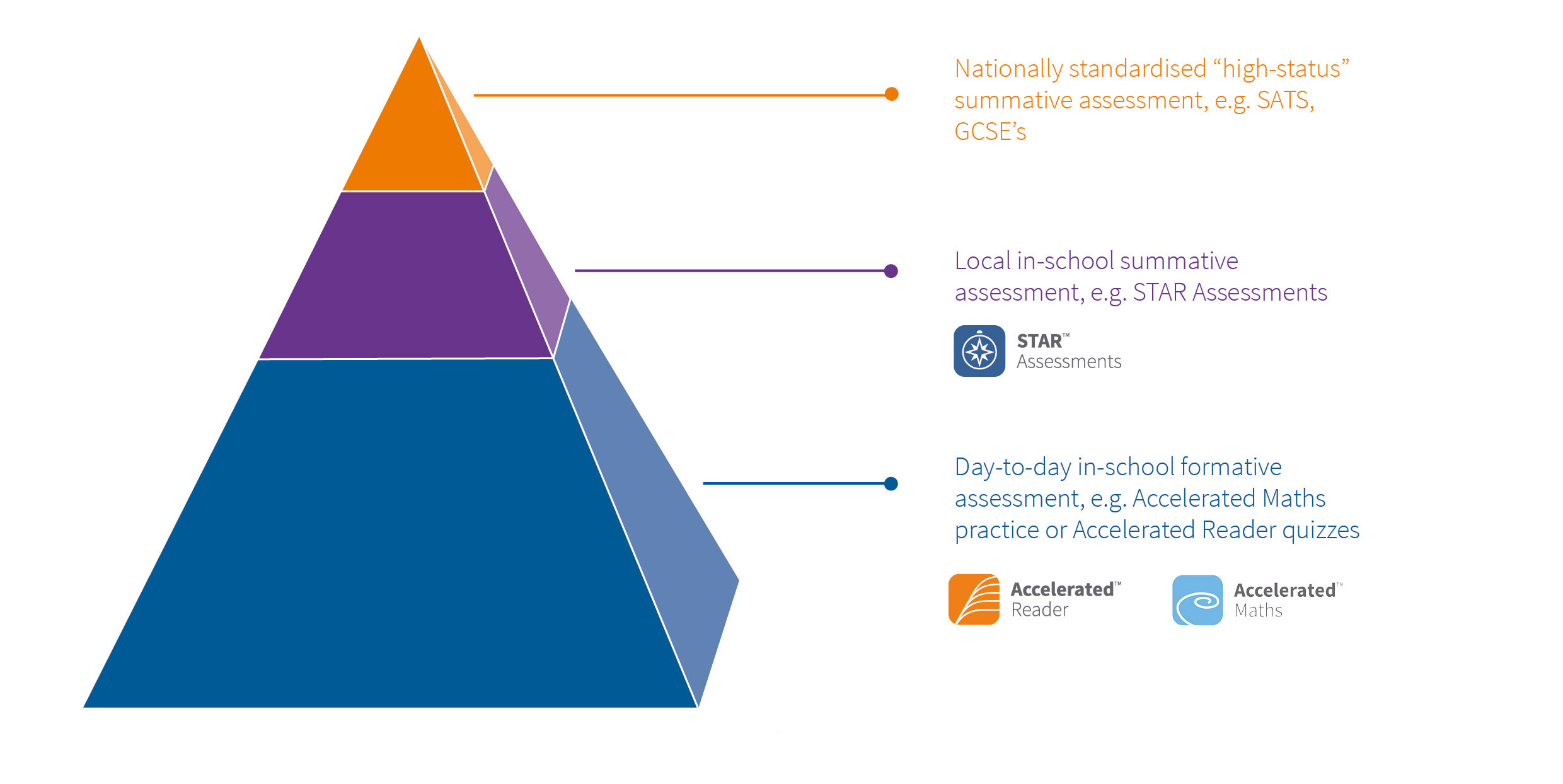October 28, 2015
Over two years have elapsed since Michael Gove, then Secretary of State for Education, announced the abolition of Levels as part of the introduction of a new national curriculum to be taught in all authority-maintained schools in England from the start of September 2014.
Arguing at the time that removing levels would “allow teachers greater flexibility in the way that they plan and assess pupils’ learning”, the government also announced that they would not be replaced.
Other than establishing a Commission on Assessment without Levels in March 2015, the Government has been rather quiet on the subject – waiting instead for the Commission’s recommendations, which were finally published in mid-September. In the report, a great deal of emphasis is placed on assessment – but what do we mean by assessment?
This pyramid, which once formed part of the Renaissance Learning logo, broadly represents the three overarching forms of assessment described in the report.
In his foreword, Chair of the Commission John McIntosh CBE writes: “It goes without saying that assessment goes hand-in-hand with the curriculum; but it is high quality formative assessment that goes to the very heart of good teaching.” This is echoed in the report’s guidance to teachers on the primary purposes of day-to-day in-school formative assessment:
“In-school formative assessment should be an integral part of teaching and learning. It allows teachers to understand pupil performance on a continuing basis. It enables teachers to identify when pupils are struggling, when they have consolidated learning and when they are ready to progress.”
The report also states that OFSTED “will want to be assured that teachers are making effective use of formative assessment to support teaching and learning to support teaching and learning” – as it will form part of their wider judgement about the quality of teaching in schools.
When it comes to choosing and implementing local summative assessment, the Commission believes that whatever a school settles on should serve the needs of pupils and teachers and that the Government in their official response.
The focus on assessment is not unique to England as Scotland’s First Minister Nicola Sturgeon recently called for tests in literacy and numeracy that will provide reliable evidence of a child’s progress. Similarly in Wales, Professor Donaldson recommends that their new curriculum should focus more on formative assessment: “Testing can be an important learning tool. [But] if I’d have to choose between accountability and learning, I’d go with learning every time.”
Anyone who has attended a customer workshop or watched our recorded webinar on the new Reading and Maths Dashboards will know that STAR has been greatly enhanced to include both Learning Progressions and Student Growth Percentiles. This wealth of data also sits within the Dashboard alongside key information from Accelerated Reader and Accelerated Maths – providing an in-depth picture of the reading or maths ability of individual children and groups of children. Furthermore, additional STAR licenses can now be purchased for children not using AR or AM, enabling their skills and progress to be easily identified, tracked and measured.
To learn more about assessing without levels within STAR Reading and STAR Maths you can download an outline of our work with the National Federation of Education Research (NFER) on establishing Learning Progressions: https://uk.renaissance.com/star-assessments/learning-progressions-new-national-curriculum-england/. You can also view a report by Dr. Damian Betebenner about Student Growth Percentiles (SGP), and how they provide the means to assess and monitor without levels. You can also call us on: +44 (0)20 7184 4000, where a member of our team will be happy to provide you with any further information.

